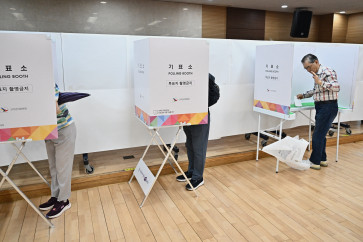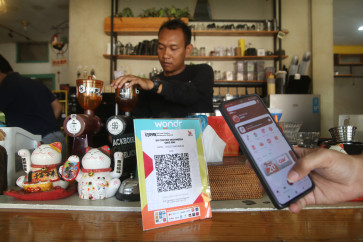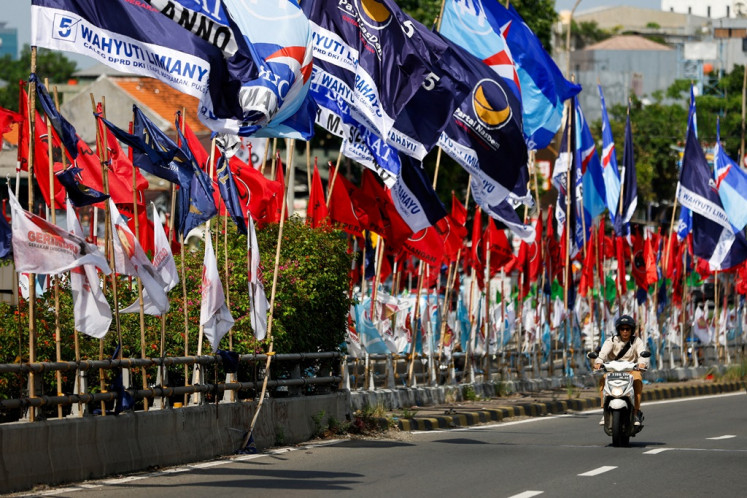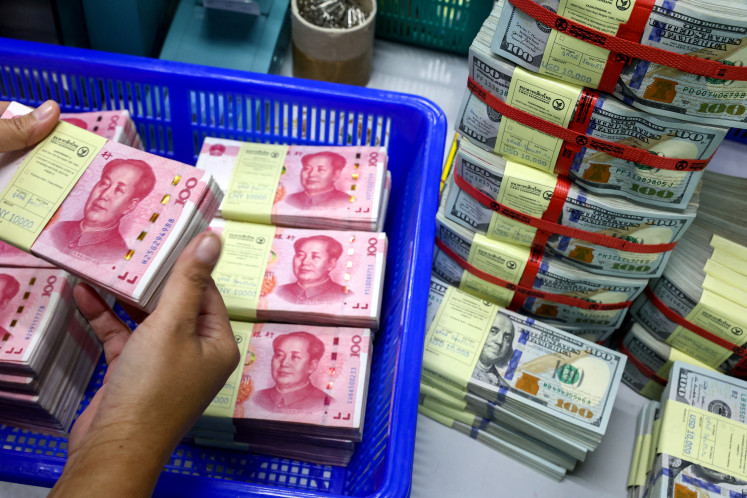Ukraine war may bring windfall to Indonesia’s trade balance
Change text size
Gift Premium Articles
to Anyone
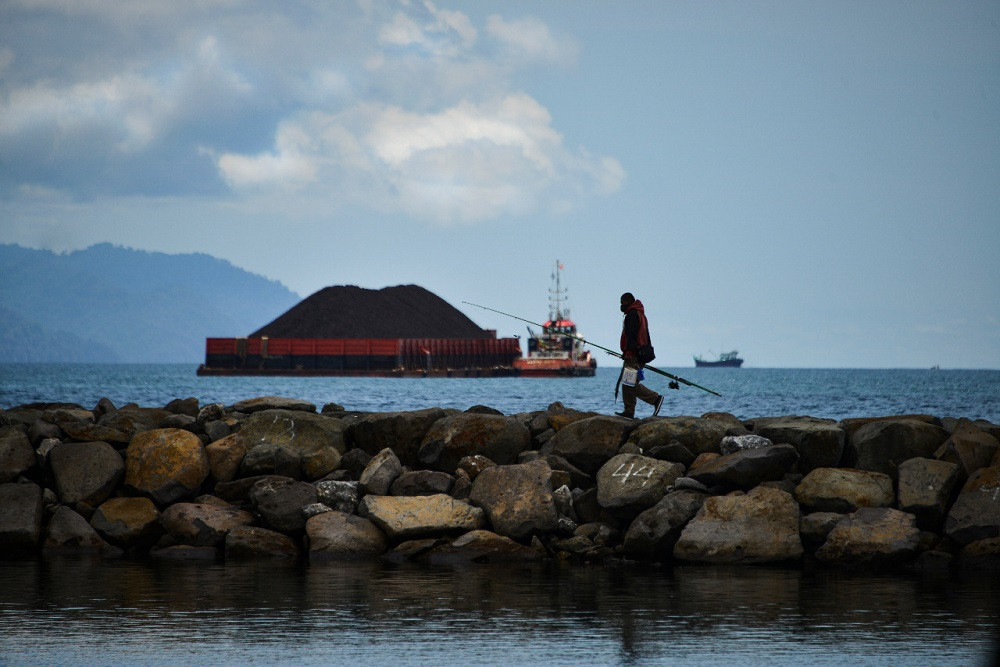
T
he Ukraine and Russia crisis is expected to have a positive impact on Indonesia's trade, with most of the country’s exports benefiting from surging commodity prices.
Indonesia’s top exports include crude palm oil (CPO), coal and metals like aluminum, copper and nickel, all of which have seen price surges in the weeks following Russia's invasion of Ukraine. The two Eastern European countries are also big exporters of coal and these metals.
At the same time, Indonesia is a big importer of crude oil and certain food commodities, such as wheat and soybeans. The two Eastern European countries are also big on some of these commodities.
“This is the consequence of becoming a net exporter of commodities. Despite the hike in oil prices, we are still gaining amid the ongoing crisis in Eastern Europe,” said David Sumual, chief economist at Bank Central Asia (BCA), Indonesia's largest private lender, on March 11.
Global commodity prices have been rising this year as the global economy recovers from the COVID-19 pandemic, but the price spike has been exacerbated by the war raging in Eastern Europe. Prices of nickel, coal and aluminum, as well as agricultural commodities like wheat, have surged to multiyear highs, with some hitting all-time peaks.
Read also: High oil prices put new strains on state budget
Coal prices passed US$439 per ton on March 8, a fivefold increase from last year, according to Business Insider data. The same data also shows that CPO reached 8,163 ringgit ($1,939) per ton on March 1, almost doubling from the same period last year. The two commodities alone account for around a quarter of Indonesia's annual exports.
Along with surging minerals, oil prices have surpassed $130 per barrel, double from the level at the beginning of the pandemic, as many fear that Western sanctions on Russian oil and gas will disrupt global supplies.
Josua Pardede, the chief economist at private lender Bank Permata, concurred with David, saying the surging price had affected both Indonesia's top export and import commodities, but the effect remained manageable.
Around 60 percent of Indonesia's domestic oil consumption was supplied from imports, which meant rising oil prices would widen the country’s oil deficit. Moreover, imported raw materials were also hit by surging commodity prices, which would affect the domestic manufacturing industry.
“Overall, the impact is mixed, but the plantation and mining sectors have remained positive. So, we still could gain some benefits. It's still good for the state budget and current account deficit,” Josua told the Post on Friday.
An economist at Moody’s Analytics said in a statement on March 8 that the conflict also hit vegetable oil prices, as surging oil prices had led many countries to switch to biofuels. This could place further stress on the already-tight edible oil market.
A drop in soybeans and rapeseed oil production, as well as Indonesia's recent domestic market obligation (DMO) policy on CPO, are expected to complicate matters.
Indonesian Palm Oil Association (GAPKI) executive director Mukti Sardjono said on Friday that “the government needs to regulate both export and domestic use of palm oil wisely to maintain the national trade balance”.
Read also: Surging import costs hit Indonesia’s food industry
Credit rating agency FitchRatings said that most Asia Pacific countries faced downside external risks from the Ukraine crisis as most of these countries were net energy importers, except for Mongolia, Australia and Malaysia.
At the same time, many Asia Pacific countries also had relatively strong external positions, with either current account surpluses or modest deficits that provide a buffer from commodity price surges.
“The impact of energy-market turmoil following the Russia/Ukraine conflict […] differs significantly per sovereign, but on the whole is likely to be a headwind for the region,” said FitchRatings.
The price surge might also trigger a rise in subsidy spending in Asia Pacific countries with a history of price stability, such as Pakistan, Malaysia, India and Indonesia. FitchRatings also noted that the COVID-19 pandemic had eroded many Asia Pacific countries’ buffers from commodity price hikes.
Yusuf Rendy Manilet, a researcher at the Center of Reform on Economics (CORE), said that if the surging global inflation finally led to a hike in benchmark rates, Indonesia would be more prepared than before.
He said Indonesia had greater foreign reserves now than when the United States Federal Reserve underwent a taper tantrum in 2013, especially with Indonesia enjoying a trade surplus in the last several months. As commodity prices go up, Indonesian exports will expand even more, creating better stability to respond to surging import prices.
Foreign ownership on government bonds has also dropped to a year low, reducing the country’s risk in the event of capital outflows. Moreover, Bank Indonesia (BI) still has a considerable amount of “ammunition” to keep the rupiah stable.
“Will massive depreciation hit Indonesia? Taking these things into account, it's highly unlikely,” Yusuf said.

